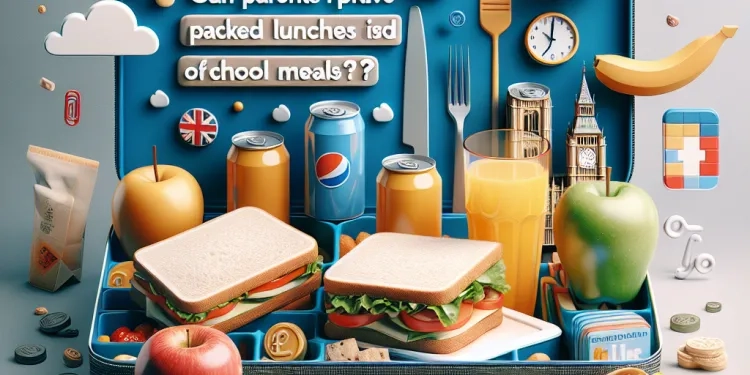
Find Help
More Items From Ergsy search
-

How are food allergies managed in UK schools?
Relevance: 100%
-

What measures are taken to ensure food safety in school meals?
Relevance: 62%
-

Are there any initiatives to reduce food waste in schools?
Relevance: 60%
-

How can nut allergies be managed?
Relevance: 57%
-

What are Nut Allergies?
Relevance: 57%
-

How are special dietary requirements catered for in school meals?
Relevance: 53%
-

What are Dairy Allergies?
Relevance: 51%
-

Is there a cure for nut allergies?
Relevance: 51%
-

How are school meals provided in the UK?
Relevance: 50%
-

How is a nut allergy diagnosed?
Relevance: 49%
-

What foods should I avoid if I have a nut allergy?
Relevance: 47%
-

Can nut allergies be outgrown?
Relevance: 47%
-

Can parents provide packed lunches instead of school meals?
Relevance: 46%
-

Can nut allergies develop later in life?
Relevance: 46%
-

What should I do if I think I have a nut allergy?
Relevance: 46%
-

What types of nuts can cause allergies?
Relevance: 45%
-

Are there educational components to the school meal program?
Relevance: 45%
-

What are the symptoms of a nut allergy?
Relevance: 44%
-

Can children with disabilities access school meals?
Relevance: 44%
-

Dealing with Seasonal Allergies
Relevance: 43%
-

Are school meals inspected for quality and standards?
Relevance: 42%
-

How do food banks get their food?
Relevance: 42%
-

What is included in a typical school meal in the UK?
Relevance: 42%
-

Are nut oils safe for people with nut allergies?
Relevance: 42%
-

What should I tell my family and friends about my nut allergy?
Relevance: 42%
-

What is the difference between a nut allergy and intolerance?
Relevance: 41%
-

Is it safe to eat foods labeled as 'may contain nuts'?
Relevance: 41%
-

Can I get the COVID jab if I have allergies?
Relevance: 41%
-

What is the purpose of providing school meals in the UK?
Relevance: 41%
-

Are school meals free for all students in the UK?
Relevance: 40%
-

See4School
Relevance: 39%
-

What foods can trigger nettle rash?
Relevance: 39%
-

What is the average cost of a school meal in the UK?
Relevance: 39%
-

How can parents provide feedback on school meals?
Relevance: 39%
-

Is epinephrine the only treatment for severe nut allergy reactions?
Relevance: 38%
-

Can I go to work or school if I have norovirus?
Relevance: 37%
-

Who is responsible for providing school meals in the UK?
Relevance: 37%
-

Are vegetarian or vegan options available in UK school meals?
Relevance: 37%
-

What is the difference between a food bank and a food pantry?
Relevance: 36%
-

How can I support my local food bank?
Relevance: 36%
Introduction to Food Allergy Management in UK Schools
Food allergies can pose significant challenges in school environments, where children spend a substantial portion of their day. In the UK, schools are responsible for ensuring the safety and well-being of children with food allergies. This involves creating a supportive environment that minimizes the risk of exposure to allergens and managing any allergic reactions effectively. The policies and practices put in place are aimed at safeguarding the health of all pupils with food allergies.
Identification and Communication
Effective management of food allergies in UK schools begins with proper identification and communication. Parents are encouraged to inform the school of their child's allergies upon enrollment. This information is typically documented and shared with all relevant staff members, including teachers, dining hall staff, and school nurses. Schools often maintain an up-to-date list of students with allergies and ensure it is accessible to all staff who might need it in an emergency.
Individual Healthcare Plans
Many UK schools develop an Individual Healthcare Plan (IHP) for each student with a food allergy. This plan is created in collaboration with parents, healthcare professionals, and the school. The IHP outlines the specific allergies, the symptoms of an allergic reaction, the appropriate emergency response, and any medications required, such as antihistamines or epinephrine auto-injectors (commonly known as EpiPens). It also includes procedures for preventing exposure to allergens during school hours.
Staff Training and Awareness
Staff training is a critical component of managing food allergies in schools. UK schools provide training for teachers and support staff on recognizing the signs of allergic reactions and how to respond appropriately, including the administration of emergency medications. Regular training sessions ensure that all staff remain confident and competent in dealing with potential allergy-related incidents. Schools also encourage general allergy awareness among all students to promote a supportive and inclusive environment.
Safe Food Practices
UK schools implement safe food practices to minimize the risk of allergen exposure. This includes clear labeling of food items, having allergen-free zones, and monitoring packed lunches brought from home. Schools work with catering services to ensure menu planning takes into account students' dietary needs and safe preparation methods are followed. Students with severe allergies may carry their lunches if necessary to avoid exposure to potential allergens.
Emergency Response
In the event of an allergic reaction, schools have established emergency response procedures. Staff are trained to act quickly, administering medication as outlined in the student's IHP and contacting emergency services if needed. Parents are informed immediately, and post-incident reviews are conducted to assess the response and update IHPs where necessary.
Conclusion
Managing food allergies in UK schools requires a collaborative approach between parents, schools, and healthcare professionals. By implementing comprehensive policies, schools aim to create a safe environment where all students, regardless of their allergies, can learn and thrive. Continuous education, clear communication, and adherence to safety protocols are essential components in the effective management of food allergies.
Frequently Asked Questions
What are food allergies?
Food allergies occur when the body's immune system reacts to certain proteins in foods as if they were harmful.
How do schools identify students with food allergies?
Parents and guardians are required to inform the school about any food allergies during enrollment or as soon as the condition is diagnosed.
What steps do staff take to manage food allergies?
Staff receive training on how to recognize and respond to allergic reactions and anaphylaxis, including administering auto-injectors.
Are food allergy policies required in UK schools?
While not all schools are mandated by law to have specific food allergy policies, many schools voluntarily implement such policies to ensure student safety.
How are school meals adapted for students with food allergies?
School menus may offer allergy-safe options and kitchens follow strict procedures to avoid cross-contamination.
What is an anaphylaxis emergency plan?
It is a personalized action plan outlining the steps to take in case of a severe allergic reaction, often including the use of an adrenaline auto-injector.
Can students carry their own medication?
Yes, students are encouraged to carry their own adrenaline auto-injectors if appropriate for their age and understanding of management.
How are non-teaching staff involved in managing food allergies?
Non-teaching staff, such as school caterers and lunchtime supervisors, are also trained in managing food allergies and cross-contamination.
What should parents do if their child has a new food allergy diagnosis?
Parents should inform the school immediately and provide updated medical action plans and medication as needed.
Are students without food allergies educated on the condition?
Schools often incorporate education about food allergies into health and science curricula to promote understanding and empathy.
What are the most common food allergens in schools?
Common allergens include peanuts, tree nuts, milk, eggs, soy, wheat, fish, and shellfish.
How are parents informed about allergy management procedures?
Schools typically inform parents through meetings, newsletters, and policy documents available on school websites.
Is there legislation in the UK related to food allergies in schools?
The Children and Families Act 2014 includes provisions for health conditions at school, which encompass allergies.
Can schools ban certain foods to protect allergic students?
Some schools may choose to implement 'nut-free' policies or other restrictions to minimize risk, though this is often a school-level decision.
How are allergy incidents recorded in schools?
Incidents are documented in accordance with school policies, including details of the reaction and actions taken.
What role do healthcare professionals play in managing school allergies?
Healthcare professionals provide guidance on individualized care plans and work with schools to train staff.
Are there resources available for schools to improve allergy management?
Yes, organizations such as Allergy UK and the Anaphylaxis Campaign offer resources and training for schools.
How often should allergy management policies be reviewed?
Policies should be reviewed annually or whenever there are significant changes to guidance or student needs.
What responsibility do students have in managing their allergies?
Age-appropriate education is provided to help students understand their allergies and recognize symptoms to alert staff.
How do schools handle extracurricular activities for allergic students?
Schools ensure all staff involved in extracurricular activities are aware of students' allergies and carry necessary emergency medication.
Useful Links
This website offers general information and is not a substitute for professional advice.
Always seek guidance from qualified professionals.
If you have any medical concerns or need urgent help, contact a healthcare professional or emergency services immediately.
Some of this content was generated with AI assistance. We’ve done our best to keep it accurate, helpful, and human-friendly.
- Ergsy carfully checks the information in the videos we provide here.
- Videos shown by Youtube after a video has completed, have NOT been reviewed by ERGSY.
- To view, click the arrow in centre of video.
- Most of the videos you find here will have subtitles and/or closed captions available.
- You may need to turn these on, and choose your preferred language.
- Go to the video you'd like to watch.
- If closed captions (CC) are available, settings will be visible on the bottom right of the video player.
- To turn on Captions, click settings .
- To turn off Captions, click settings again.
More Items From Ergsy search
-

How are food allergies managed in UK schools?
Relevance: 100%
-

What measures are taken to ensure food safety in school meals?
Relevance: 62%
-

Are there any initiatives to reduce food waste in schools?
Relevance: 60%
-

How can nut allergies be managed?
Relevance: 57%
-

What are Nut Allergies?
Relevance: 57%
-

How are special dietary requirements catered for in school meals?
Relevance: 53%
-

What are Dairy Allergies?
Relevance: 51%
-

Is there a cure for nut allergies?
Relevance: 51%
-

How are school meals provided in the UK?
Relevance: 50%
-

How is a nut allergy diagnosed?
Relevance: 49%
-

What foods should I avoid if I have a nut allergy?
Relevance: 47%
-

Can nut allergies be outgrown?
Relevance: 47%
-

Can parents provide packed lunches instead of school meals?
Relevance: 46%
-

Can nut allergies develop later in life?
Relevance: 46%
-

What should I do if I think I have a nut allergy?
Relevance: 46%
-

What types of nuts can cause allergies?
Relevance: 45%
-

Are there educational components to the school meal program?
Relevance: 45%
-

What are the symptoms of a nut allergy?
Relevance: 44%
-

Can children with disabilities access school meals?
Relevance: 44%
-

Dealing with Seasonal Allergies
Relevance: 43%
-

Are school meals inspected for quality and standards?
Relevance: 42%
-

How do food banks get their food?
Relevance: 42%
-

What is included in a typical school meal in the UK?
Relevance: 42%
-

Are nut oils safe for people with nut allergies?
Relevance: 42%
-

What should I tell my family and friends about my nut allergy?
Relevance: 42%
-

What is the difference between a nut allergy and intolerance?
Relevance: 41%
-

Is it safe to eat foods labeled as 'may contain nuts'?
Relevance: 41%
-

Can I get the COVID jab if I have allergies?
Relevance: 41%
-

What is the purpose of providing school meals in the UK?
Relevance: 41%
-

Are school meals free for all students in the UK?
Relevance: 40%
-

See4School
Relevance: 39%
-

What foods can trigger nettle rash?
Relevance: 39%
-

What is the average cost of a school meal in the UK?
Relevance: 39%
-

How can parents provide feedback on school meals?
Relevance: 39%
-

Is epinephrine the only treatment for severe nut allergy reactions?
Relevance: 38%
-

Can I go to work or school if I have norovirus?
Relevance: 37%
-

Who is responsible for providing school meals in the UK?
Relevance: 37%
-

Are vegetarian or vegan options available in UK school meals?
Relevance: 37%
-

What is the difference between a food bank and a food pantry?
Relevance: 36%
-

How can I support my local food bank?
Relevance: 36%


